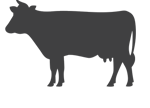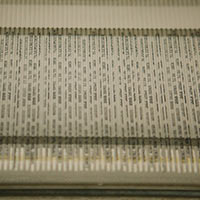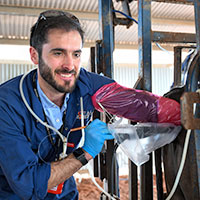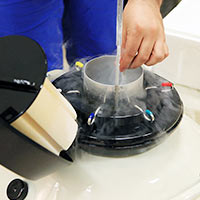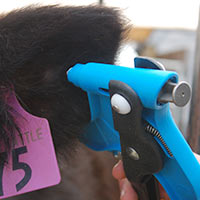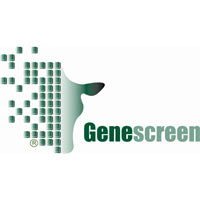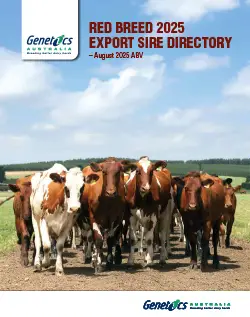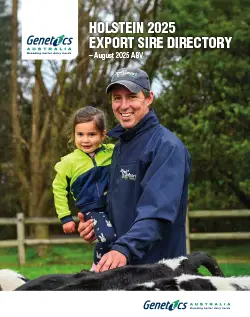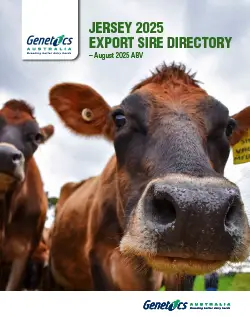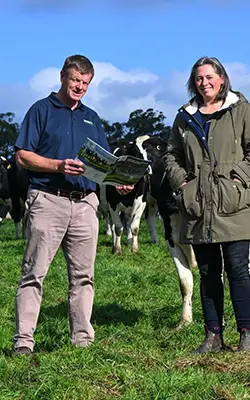Genescreen
GENESCREEN unlocks the secrets by screening and profiling the genetics in your herd. It analyses how genetics are working in your herd, assisting you to set breeding goals and monitor your progress towards achieving them.
Your GENESCREEN report helps you select genetics that make the best possible contribution to your herd s profitability and value.
A GENESCREEN report is easy to request, does not require on-farm evaluation and is FREE to Genetics Australia shareholders. There’s a wealth of information to be discovered in your own herd recording data. Let GENESCREEN unlock it for you today!
How to get a Genescreen report
Complete the Genescreen order form below, and email it to [email protected]
GENESCREEN tracks your herd’s genetic progress from year to year and compares it to the Australian AI-bred cow average. This graph shows a herd where the selection of genetics is keeping the herd well ahead of the average.
This information assists you set your breeding goals and monitor progress towards them. It also shows how the genetic merit of bulls, used in your breeding program, contribute to the herd’s genetic progress.


Using the relationship between genetics and production, GENESCREEN calculates the dollar return resulting from higher genetic merit. The financial return can be calculated using either the Australian Selection index (incorporating fat, protein and cartage) or customised for the particular payments you receive.
Knowing the $ value of genetic improvement helps you assess the cost benefit of the genetic merit of the bulls used in your breeding program. What influences survival in your herd

Using your herd recording data GENESCREEN analyses the factors that contribute to survival and lifetime production. GENESCREEN reports on how survival is related to production. It also evaluates the influence of genetic merit for non-production traits, including fertility, somatic cell count and type traits.
This graph shows the relationship between a cow’s Production Index (PI), when 2 years old, and corresponding survival. Terminated cows are allocated to 5 groups, from the lowest to the highest PI.
Typically, as in this case, the higher the 2 year old PI the longer the survival. High Genetic merit cows survive longer in dairy herds.

Individual cow profile
Using each cow’s pedigree record GENESCREEN identifies the genetic profile and provides a recommended mating. The bulls can be selected from a group you have nominated or Genescreen can select for you. Individual matings based on the genetic profile of the cow, is a powerful way of achieving balanced bull selection and genetic improvement.
Herd profile
Combining each cow’s genetic profile GENESCREEN compiles a genetic summary for the herd. This overall profile identifies the percentage of cows significantly below the average for particular traits.
For example, this herd profile highlights that the herd average is a great 108 for cell count while teat length is 3 below the average on 97. A herd profile helps in the selection of high genetic merit bulls that address these below average traits.


